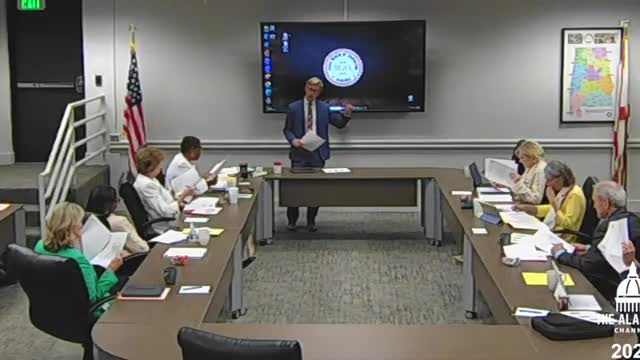New RAISE funding formula and prefunding of school choice will shift how districts get targeted dollars; nonprofits face uncertain reductions
Get AI-powered insights, summaries, and transcripts
Subscribe
Summary
Department staff said the RAISE Act will redirect about $166 million in initial funds — including roughly $108 million from a state reserve and $58 million reallocated from existing line items — to new targeted allocations; officials also described the legislature’s decision to prefund the Choose school‑choice program.
Department staff briefed the board on the RAISE Act — a new funding model that replaces several prior line items (for example, at‑risk and gifted allocations) with targeted allocations for poverty, special education tiers and English‑language learners — and on the legislature’s decision to prefund the Choose (school‑choice) program before tax deposits hit the Education Trust Fund.
What was reported: Staff described the initial RAISE Act funding package as approximately $166 million in total for the first implementation cycle. They said roughly $108 million came from the Education Opportunities Reserve Fund (EORF) and about $58 million was reallocated from existing recurring line items (for example, at‑risk, ELL, gifted) and moved into the new formula. Staff emphasized that the legislature included protections so no district would receive less in a line item than it previously had been allocated.
“Nobody got less than they were getting before,” a department official said when explaining transitional protections for local allocations.
Waiver and flexibility rules: Staff said districts have authority to move up to 10% among certain line items locally without state approval; any shift above 10% requires a waiver request to the department. The department said this was designed to preserve program integrity while allowing some local flexibility.
Choose Act prefunding: The department also explained the legislature’s decision to prefund the school‑choice voucher program by taking money off the top of tax receipts before the Education Trust Fund split. Staff said the legislature directed $100 million for that prefunding in the fiscal year ending Sept. 30, 2027, and that subsequent years would be funded at $150 million annually. Prefunding reduces the share of revenue subject to the normal K‑12/higher‑education split and places a portion of program cost outside the usual fund allocation.
Impacts on nonprofits and summer programs: Staff warned nonprofits and community providers that some traditional at‑risk grant funding was reduced or reallocated and that organizations that historically received state at‑risk grants (for after‑school and summer programming) may see reductions. Department leaders said they plan to provide guidance to community providers by August and will identify summer‑program funding opportunities where possible; they urged caution and early planning by nonprofits to avoid layoffs.
Why it matters: The RAISE Act changes how funding for poverty, special education and other targeted services is calculated and distributed; prefunding the Choose program changes how much revenue is available under the Education Trust Fund split and may change the fiscal calculus for districts and community partners.
Ending: Department staff said they will keep districts and stakeholder groups informed and provide CFO‑level tools so local officials can compare prior year allocations to new RAISE Act allocations.
